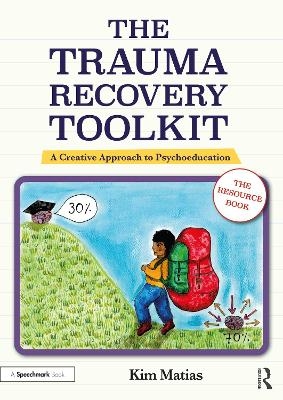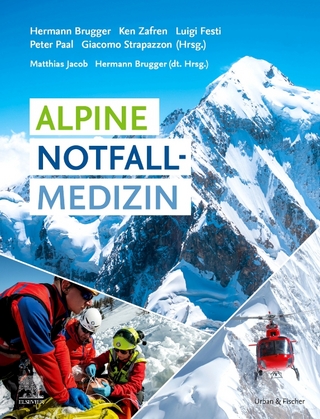
The Trauma Recovery Toolkit: The Resource Book
Routledge (Verlag)
978-1-032-26184-3 (ISBN)
This guidebook is part of The Trauma Recovery Toolkit, a guidebook and flashcard set that has been created to empower individuals living with the effects of trauma and the mental health professionals that support them.
Inspired by the latest research surrounding mindfulness, self-compassion, neuroscience and trauma recovery, the resource explores the effect of trauma on the brain and body and offers strategies which may be helpful in combatting the symptoms. The flashcard format enables trauma survivors to creatively respond to visual aids and prompts in a way that is comfortable for them, providing mental health professionals with a more creative and person-centred approach to directing clients towards their own healing journey.
This resource comprises:
38 colourful flashcards that can be used as standalone visual aids or as a platform for creative responses
A guidebook delving into the individual cards, their meaning and symbolism, and the research behind them
Additional resources to support the client’s development of their own personalised cards
Weaving together psychoeducation, creativity, symbolism, and the latest neuroscientific research, this essential toolkit offers all professionals working in mental health services a creative way to engage clients with therapy, empowering them to develop habits and ways of being that can support their recovery.
Intended for use in educational settings and/or therapy contexts under the supervision of an adult. This is not a toy.
Kim Matias has worked in the mental health sector for over a decade as a support worker, mental health mentor and art psychotherapist. Within her role as an art psychotherapist, she set up two art psychotherapy provisions within the supported housing sector. Currently she works as an art psychotherapist within the NHS in secondary mental health services, working with adults within a community setting. Kim is a qualified EMDR practitioner and one of the regional coordinators for the British Association of Art Therapists. Her interests include how trauma affects one's physiology and how psychoeducation and creativity can be combined as a vehicle to communicate methods which may encourage healing to those who have been impacted by trauma.
This guidebook is part of The Trauma Recovery Toolkit and needs to be purchased alongside the flashcards for full and effective use. Both can be purchased together as a set: 978-0-367-54690-8
Personal background and introduction to toolkit A definition of trauma Chapter 1: Stabilisation Chapter 2: Practical use of flashcards Chapter 3: How trauma affects the brain Chapter 4: How trauma affects the body (viewed through a polyvagal theory lens) Chapter 5: Introduction to ‘what could help’ cards Chapter 6: Trauma informed mindfulness Chapter 7: Trauma informed self-compassion Chapter 8: The road to recovery Chapter 9: Visual referencing: Onwards and beyond Clinical examples Appendix
| Erscheinungsdatum | 21.07.2022 |
|---|---|
| Reihe/Serie | The Trauma Recovery Toolkit |
| Zusatzinfo | 56 Tables, black and white; 55 Line drawings, color; 55 Illustrations, color |
| Verlagsort | London |
| Sprache | englisch |
| Maße | 210 x 297 mm |
| Gewicht | 520 g |
| Themenwelt | Medizin / Pharmazie ► Medizinische Fachgebiete ► Notfallmedizin |
| Medizin / Pharmazie ► Medizinische Fachgebiete ► Psychiatrie / Psychotherapie | |
| Sozialwissenschaften ► Soziologie | |
| ISBN-10 | 1-032-26184-6 / 1032261846 |
| ISBN-13 | 978-1-032-26184-3 / 9781032261843 |
| Zustand | Neuware |
| Haben Sie eine Frage zum Produkt? |
aus dem Bereich


